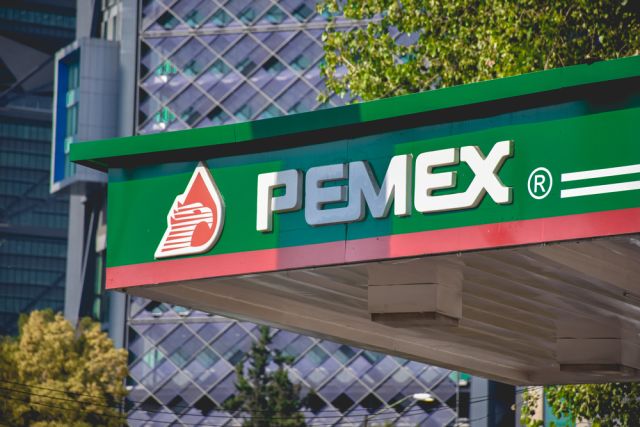
Dos Bocas will produce 170,000 bbl/d of gasoline and 120,000 bbl/d of ultra-low sulfur diesel every day, Pemex said in an earlier statement on its website. (Source: Shutterstock)
MEXICO CITY, Mexico—State-owned Petroleos Mexicanos (Pemex) is expected to finish construction of its 340,000 bbl/d Olmeca refinery in Dos Bocas next year, significantly reducing Mexico’s dependence on fuel from the U.S., according to the International Energy Agency (IEA).
The commissioning of Dos Bocas—located in Paraíso, Tabasco—continues to face start-up issues, but should be online “no earlier than the fourth quarter of 2025, with the full ramp-up taking several years,” the IEA said in a new report published last week.
Dos Bocas will produce 170,000 bbl/d of gasoline and 120,000 bbl/d of ultra-low sulfur diesel every day, Pemex said in an earlier statement on its website.
Once operational, Dos Bocas will allow Pemex to reduce exports of its heavy sour Mayan crude to the U.S. Gulf Coast to instead be refined domestically, the IEA said.
The combined impacts will see Pemex’s heavy sour crude exports average 130,000 bbl/d by 2030, down compared to 1.1 MMbbl/d in 2023, according to the IEA.
Earlier this year, Pemex made surprise cuts to its crude exports, reportedly made to ensure that Dos Bocas will have enough feedstock, Tudor, Pickering, Holt and Co. (TPH) reported in April 2024. These cuts could continue through 2024, analytical firm RBN Energy revealed in a statement on its website.
Dos Bocas is expected to enter its stabilization stage in 2024, according to details in Pemex’s 2023 annual Securities and Exchange Commission (SEC) filing. And by 2030, Pemex’s average refining utilization rate is expected to reach 63%, up 11.5% compared to 2023, as its “investment program bears fruit,” the IEA said.
Despite being one of the largest producers of oil in Latin America, Mexico will remain a net importer of refined products to meet the domestic demand expected between 2024-2030, the IEA said. As Mexico’s refinery operations grow and demand for liquids slows, the country will still need around 300,000 bbl/d of imported fuels in 2030 to meet demand compared to over 700,000 bbl/d in 2023.
Pemex refining system
Mexico City-based Pemex owns and operates six refineries in Mexico: Cadereyta, Madero, Minatitlán, Salamanca, Salina Cruz and Tula. Dos Bocas will boost Pemex’s national refining system to seven when it comes online in 2025. Additionally, Pemex, through its subsidiary P.M.I. Services North America, also owns one refinery in Deer Park, Texas.
Pemex’ refineries consist of atmospheric and vacuum distillation units, where the bulk of oil input is processed. Secondary processing facilities include desulfurization units and facilities for catalytic cracking, reforming and hydrotreating, Pemex said in its SEC filing.
In 2023, Pemex’s atmospheric distillation refining capacity remained stable at 1.64 MMbbl/d, while its domestic refineries processed an average 792,000 bbl/d in 2023, some 23,800 bbl/d lower than in 2022.
Pemex continues with rehabilitation activities at all of its refineries in Mexico. The aim is to address critical risks at facilities, restore reliability of assets, improve efficiency and stabilize the amount of oil that is processed, according to the company’s SEC filings.
Recommended Reading
Occidental to Up Drilling in Permian Secondary Benches in ‘25
2025-02-20 - Occidental Petroleum is exploring upside in the Permian’s secondary benches, including deeper Delaware Wolfcamp zones and the Barnett Shale in the Midland Basin.
Exxon Sits on Undeveloped Haynesville Assets as Peers Jockey for Inventory
2025-04-09 - Exxon Mobil still quietly holds hundreds of locations in the Haynesville Shale, where buyer interest is strong and inventory is scarce.
Early Innings: Uinta’s Oily Stacked Pay Exploration Only Just Starting
2025-03-04 - Operators are testing horizontal wells in less developed Uinta Basin zones, including the Douglas Creek, Castle Peak, Wasatch and deeper benches.
Antero Stock Up 90% YoY as NatGas, NGL Markets Improve
2025-02-14 - As the outlook for U.S. natural gas improves, investors are hot on gas-weighted stocks—in particular, Appalachia’s Antero Resources.
Oklahoma E&P Canvas Energy Explores Midcon Sale, Sources Say
2025-04-04 - Canvas Energy, formerly Chaparral Energy, holds 223,000 net acres in the Anadarko Basin, where M&A has been gathering momentum.
Comments
Add new comment
This conversation is moderated according to Hart Energy community rules. Please read the rules before joining the discussion. If you’re experiencing any technical problems, please contact our customer care team.






